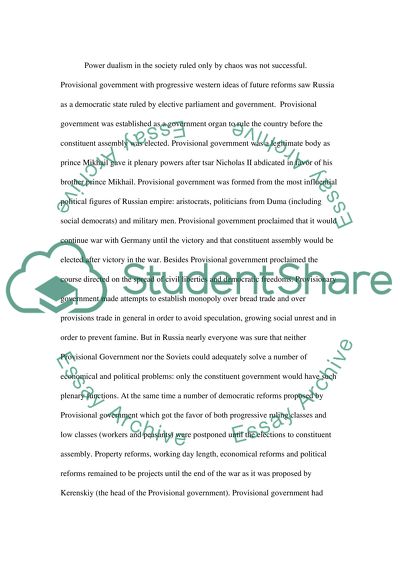Cite this document
(“Russia Revolution Essay Example | Topics and Well Written Essays - 1500 words”, n.d.)
Russia Revolution Essay Example | Topics and Well Written Essays - 1500 words. Retrieved from https://studentshare.org/history/1513971-russia-revolution
Russia Revolution Essay Example | Topics and Well Written Essays - 1500 words. Retrieved from https://studentshare.org/history/1513971-russia-revolution
(Russia Revolution Essay Example | Topics and Well Written Essays - 1500 Words)
Russia Revolution Essay Example | Topics and Well Written Essays - 1500 Words. https://studentshare.org/history/1513971-russia-revolution.
Russia Revolution Essay Example | Topics and Well Written Essays - 1500 Words. https://studentshare.org/history/1513971-russia-revolution.
“Russia Revolution Essay Example | Topics and Well Written Essays - 1500 Words”, n.d. https://studentshare.org/history/1513971-russia-revolution.


